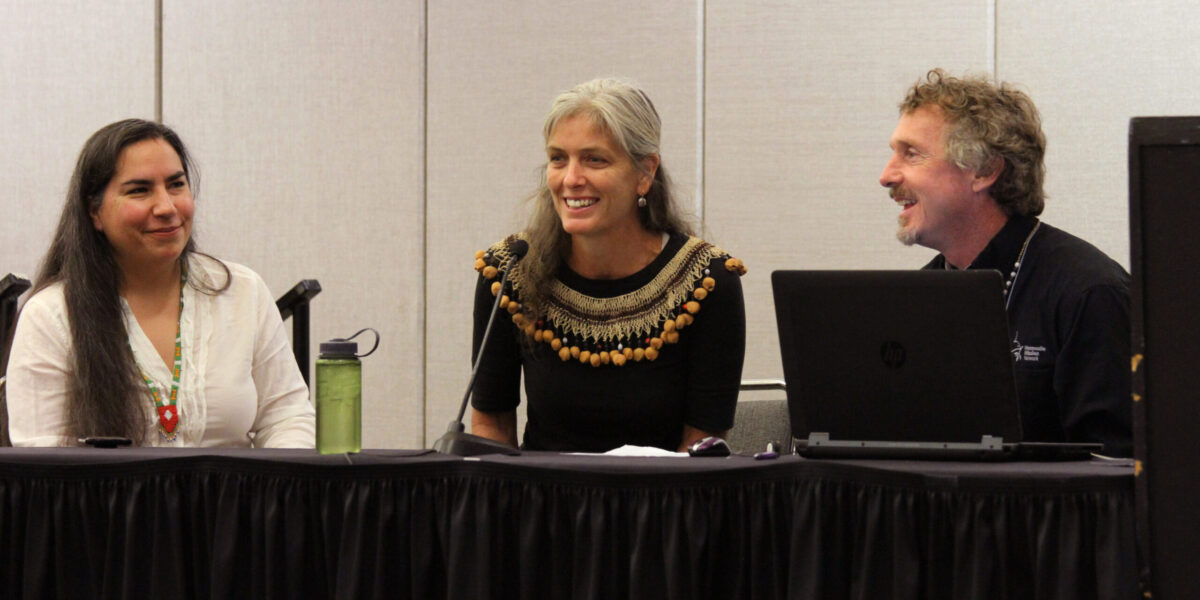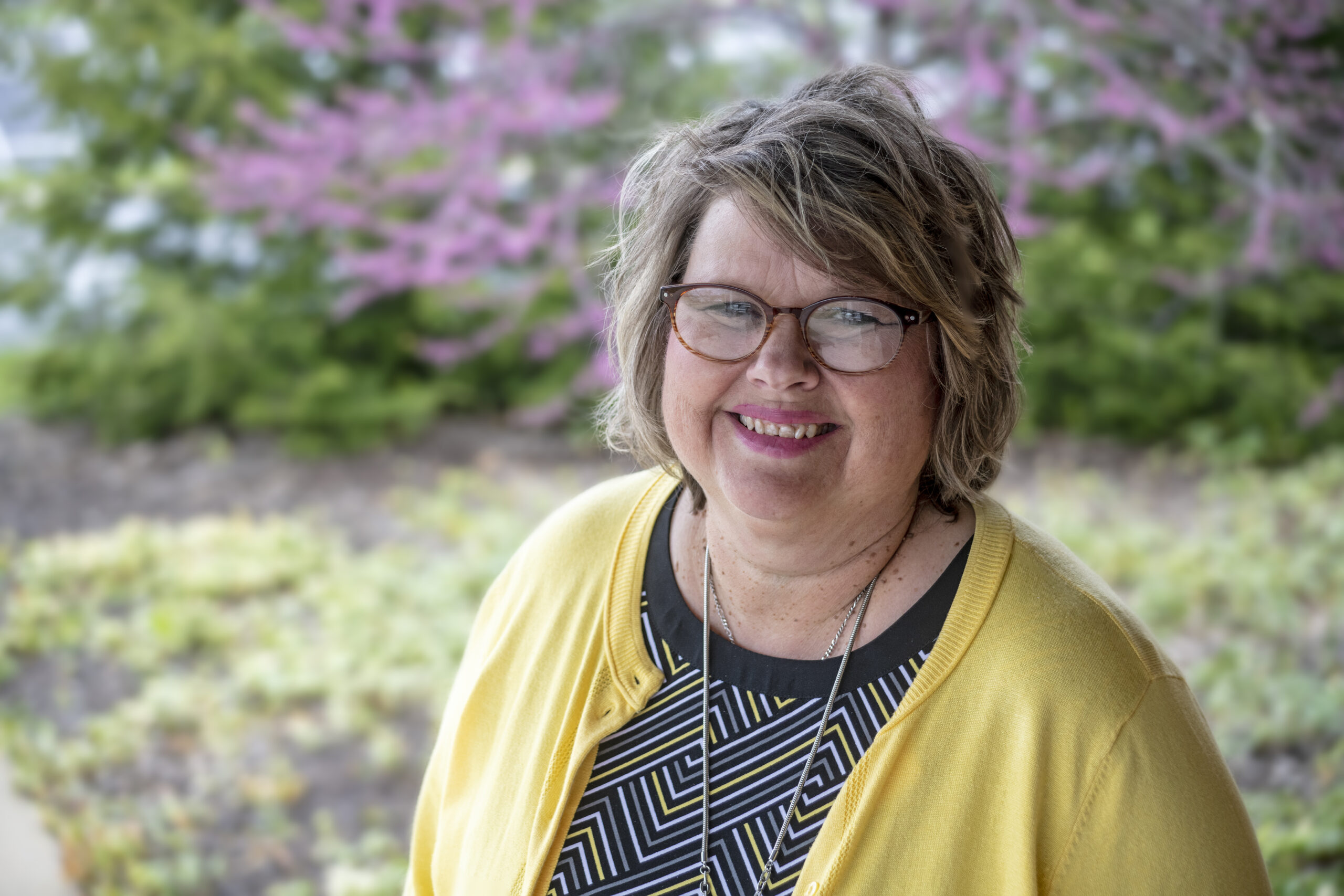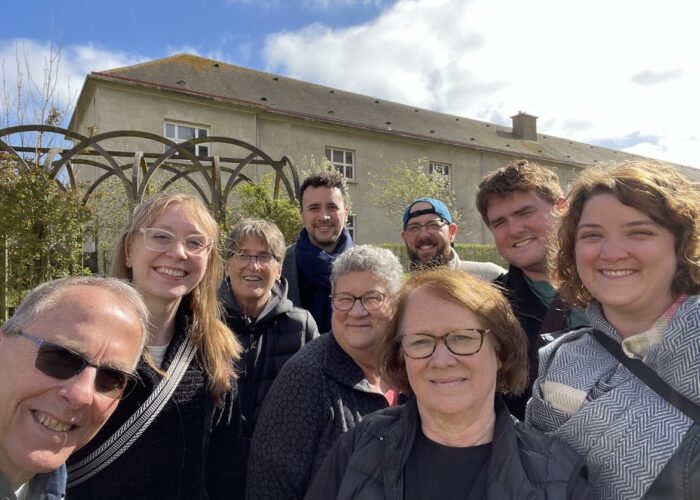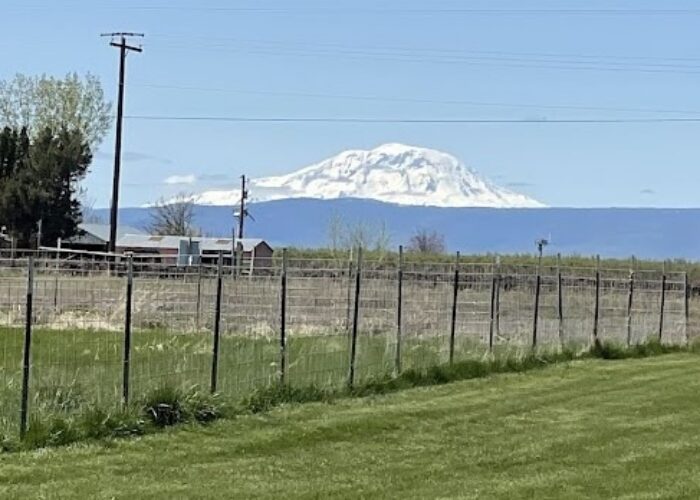KANSAS CITY (Mennonite Mission Network) – Before she became friends with Cofán people in their Ecuadorian rainforest village of Zábalo, Jane Ross Richer had not thought dreams people had while sleeping were important, she said.
Until a year ago.
That’s when she and her husband, Jerrell, who serve with Mennonite Mission Network in Ecuador for six months each year, were visiting with Mauricio Mendua, an elder of the community. He shared with them his dream of seeing dead dolphins, as far as he could see, in every direction. Two men with harpoons were stabbing the dolphins one by one. He said it was bloody. It was sad. It was frightening. He couldn’t go back to sleep.
The Cofán people recount and interpret their dreams, Jane Ross Richer said during an equipping seminar July 3 at MennoCon19. So together, with Mauricio, they wondered what might be the meaning of this dream? Who, or what, do these dolphins represent?
"For many indigenous cultures, dolphins represent humans," she said. "When we consider what is happening to indigenous people around the world and the effects western systems are having on their way of life, it is no wonder that Mauricio would have a dream like this."
During the intergenerational seminar, "Speaking to the Systems and Walking with Indigenous People," the Ross Richers were presenters along with Sarah Augustine. Augustine is a professor of sociology, The Executive Director of the Dispute Resolution Center of Yakima and Kittitas Counties and co-founder of Suriname Indigenous Health Fund.
The three presenters explored the impacts that western development and the Doctrine of Discovery (DoD) are having on indigenous peoples. (DoD is a 15th-century philosophical framework that gives "Christian governments" authority to dominate Indigenous peoples and to invade and take over their lands.) Augustine is a member of the Anabaptist-launched Dismantling the Doctrine of Discovery Coalition.
Western development – including how oil and coffee industries are stripping rainforests – has deeply impacted the Cofán people, the Ross Richers said. For example, they have watched how their young friend, Rubin (not his real name), has had to make hard choices: Should he remain in his village to hunt and fish for a living, or further his education in a city, where his lifestyle will be forever changed.
Jerrell Ross Richer gave other examples of the effects of western development. They include: how fresh fish is being replaced by canned fish; how wild animals for food are being replaced by chickens; how traditional, fermented drink is being replaced by American beers; how traditional dress is being replaced with western wear, such as sports shirts; and how medicinal plants are being replaced by western drugs.
The Ross Richers also spend half of every year in the United States. That’s when they share with Mennonite congregations about the importance of Christians helping to help preserve indigenous cultures through a Christ-centered viewpoint. One of those ways is to support learning and fellowship tours to the rain forest, where the indigenous people can share their giftedness for sustainable living. The next such tour is being planned for January 2020.
In her sharing about how to preserve and respect indigenous cultures, Augustine discussed some aspects of her work with the Dismantling the Doctrine of Discovery Coalition. The group proclaims an Anabaptist spirit of discipleship rooted in the call to the love of neighbor, seeking right relationship and reconciliation through active non-violence.
"In our dominant western culture, we often think about fairness and justice in terms of the powerful having more rights," she said. "Westerners can often think, why should a tiny group be allowed to own the majority of the wealth of the rainforest?"
In contrast, the work of the coalition is to help indigenous people become self-determining about what happens in their own communities and regions. "[In my work in Suriname] that has meant putting aside my vision for what I think should happen and giving the right to the people themselves," Augustine said.





